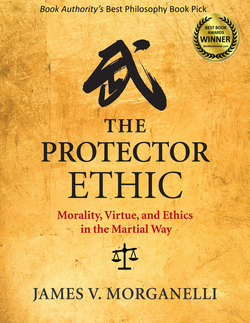Читать книгу The Protector Ethic - James V. Morganelli - Страница 14
На сайте Литреса книга снята с продажи.
Look Death in the Face
ОглавлениеThe architect of James Bond, Ian Fleming, drew inspiration from the seventeenth-century Japanese poet Matsuo Basho when he wrote the following iconic words:
You only live twice:
Once when you are born
And once when you look death in the face.3
Purposeless death is always an unmitigated tragedy because it thieves from the living. At its least, it’s an object lesson that the deceased can never recover and profit from because it denies any chance at renewal, forgoes any do-over, and disallows any potential “rebirth.”
Obviously, we live once we realize we are alive. But we also face living once we recognize that we will one day die. This sense of impermanence is an existential crisis we’re forced to reconcile throughout our lives by managing our health, our lifestyle, and how the world treats us. To say the crisis does not exist or doesn’t impact us is to cast oneself as fool or fraud. Everyone wants a second chance because we are only authentic once we realize it will all end and then play by those rules—the life-preserving ones we want to be judged by and respected for upholding. The same is true for the martial way. It is only authentic once we recognize, train, live, and act on it in ways that correspond to the moral instincts of our humanity.
I have a saying: good people who want to be better people get trained. One of the best ways to become someone who can do more for oneself and others is to train to be more martially able, because there is no better metric for one’s improvement than the ability to mitigate both inward and outward conflict.
This is why every individual ought to endure martial training for some period, if only to reveal the profound ability its skills and philosophy have to empower our sense of self-worth. The protector ethic, to stand up and defend ourselves and others who might not or cannot defend themselves, is a habit-formed behavior. Carrying out this ethic is the heart of any martial art.
Knowing we should do this, and knowing how to accomplish it, is the difference between accruing mere skill for reenactment and cultivating life-protecting habits. Should we learn the movements of CPR but devoid of their purpose? A sharper understanding of what is valuable affords acute mindfulness of what is moral—what we know we ought to protect. It provides recognition of and clarity regarding our obligations, and training becomes the direct action of our ethic.
But when we, as this time’s undaunted defenders, neoteric teachers, and persevering guardians of this path, supplant this truth, we get confused: rather than training techniques to protect and defend life, we train a life to protect and defend techniques.
If we are to do right by those in conflict, including ourselves, we must know that which unlocks the universal. We must apprentice in honor, integrity, vigilance, and rectitude as the keys to steadfast warriorship. This is nothing less than recognizing the reciprocity of natural justice, instilling temperance in our reasoning, and exhibiting prudence in our judgment, so we can, above all, have the courage to act. These cardinal virtues, at least as old as the Greek Stoics, make for the best map to the protector ethic because if we define ethics as moral values in action, then martial ethics are moral protector values in action.
To pass on real knowledge and deliver it as wisdom, to teach the tactical and perceive the ethical, to be exposed to our naturally binding obligations and by them hold fidelity to their truth so that the next generation might protect and defend themselves and their families—I’d argue that’s nothing short of God’s work.
If we are to fulfill this role, we must hold firm to this certainty: the martial way only lives once we treat it as something that can die.
